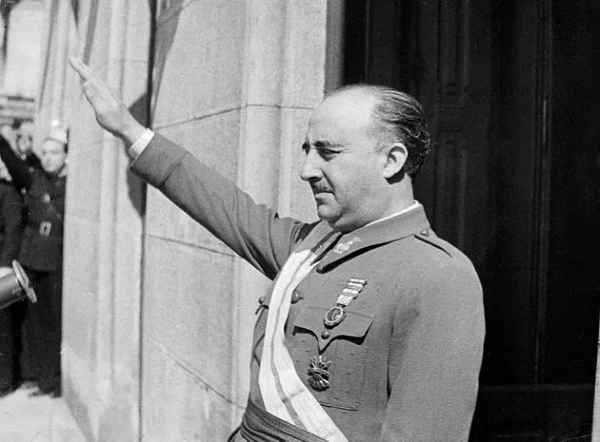FIFTY years ago this week, Francisco Franco died and Spain’s transition to democracy finally began.
But half a century on from his death, is the spectre of Spain’s diminutive dictator coming back to haunt its modern political arena?
That may well be the case, with support for Franco – the country’s dictator between 1939 and 1975 – experiencing a sharp uptick at the same time as far-right parties such as Vox surge in the polls.
The statistics are damning.
According to a recent CIS poll cited by El País, 21.3 per cent of Spaniards think the Franco years were ‘good’ or ‘very good’ – including almost one in five 18-24 year olds.
Worryingly, another survey has revealed that almost one in four ‘Gen Z’ members (18-28 years old) say an authoritarian political system ‘can be preferable’ to democracy.
And in an alarming case of historical amnesia, only six in ten Spaniards say Federico Garcia Lorca, the acclaimed poet and member of ‘Generation 27’, was assassinated by Francoist forces during the Spanish Civil War.
READ MORE: Spain grants citizenship to 170 descendants of International Brigade volunteers who fought Franco

So it has fallen on the shoulders of an acclaimed British historian to remind Spain of the horrors of the man who came to be known as El Generalísimo.
Writing in his new book, El Generalísimo: Franco, Giles Tremlett describes Franco as a ‘short, squeaky voiced army officer’ who serves as a stark warning that ‘outward mediocrity is no barrier to the ruthlessly ambitious’.
Franco’s coup against the democratically elected left-wing Republican government, railing against what he envisioned as a ‘Marxist-Jewish-masonic plot’ to destroy Spain, led to over half a million dead during the ensuing civil war.
And then in an attempt to ‘purify’ the new Spain, Franco shot 20,000 dead – and made miserable the lives of millions more, including women whose ‘rights to their bodies, children, work and property were cut, shelved, or handed over to husbands and fathers’.
To make matters worse, Franco embraced a post-war policy of autarky – the word given to complete self-reliance.
The plan drove much of Spain to famine with the British ambassador complaining that the Caudillo lived in a ‘heavy mist of self-complacency’.
But with the tourism boom of the 1960s, many remember Franco’s regime as a time of economic success.
For Tremlett, that is a dangerous idea.
“Ignorance is dangerous,” he concludes in an article for The Guardian. “It is not surprising that almost one in five young people believe his dictatorship was good for Spain. The only way to change that is to break the silence and teach young Spaniards what Francoism was really about.”
Click here to read more Spain News from The Olive Press.









Yea, 100% confident that all aspects of this article in the “Guardian” are not biased (SIC)? For just one example, how many more Spaniards and Allied Soldiers would have died if Franco had not adeptly keep Spain out of WW2? Of course Franco was no Saint. But why do you not also accurately mention or describe the opposition during the Civil War? As the Communist/Marxists supported by the USSR? Who were also guilty of incredible atrocities?